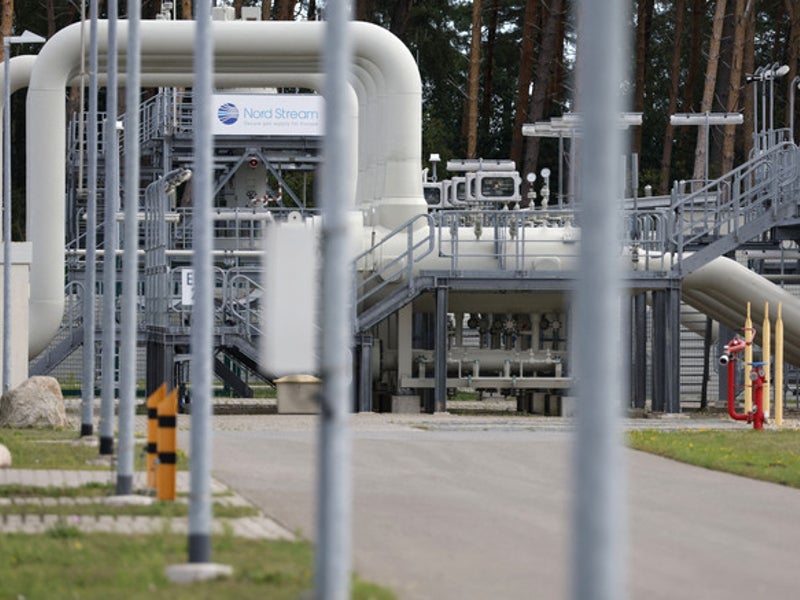
Russian state-owned energy corporation Gazprom has indefinitely shut down gas flows through its key Nord Stream 1 pipeline to Germany from 2 September.
European governments had anticipated the Nord Stream 1 pipeline to operate this week after a brief maintenance period. However, Russia abruptly stopped the flows, citing an oil leak in a turbine. Gazprom stated that until it made all repairs, it would not restart the pipeline.

Discover B2B Marketing That Performs
Combine business intelligence and editorial excellence to reach engaged professionals across 36 leading media platforms.
After Russia’s Gazprom shut down the Nord Stream 1 gas pipeline, intensifying Europe’s energy crisis, Finland and Sweden announced plans to grant billions of dollars in liquidity guarantees to their respective power firms.
Finland intends to offer $14.6bn in liquidity guarantees, while Sweden aims to provide $34bn.
Gazprom found the leak in the primary gas turbine at the Portovaya compressor station near St. Petersburg on 2 September. Gazprom posted an image of wires soaked in brown liquid on Telegram, claiming it resulted from a machinery malfunction discovered by the company.

Credit: Telegram
The discovery of the oil leak coincided with intentions by the Group of Seven (G7) wealthy nations to implement a price cap on Russian oil, reducing President Vladimir Putin’s resources to fight the war in Ukraine.

US Tariffs are shifting - will you react or anticipate?
Don’t let policy changes catch you off guard. Stay proactive with real-time data and expert analysis.
By GlobalDataThe German federal network agency said in a statement that the defects found by Gazprom are no reason to stop the gas flows. “Due to the increased precautionary measures in recent months, Germany is prepared for a failure of the Russian deliveries are now better prepared than a few months ago,” it stated.
The plan would require importers seeking transportation services and insurance coverage from companies based in G7 and EU nations to transport only Russian oil sold below the price cap. It will most likely be introduced in December.
European governments have accused Russia of weaponising energy supplies as part of an “economic war” with the West in the aftermath of Russia’s invasion of Ukraine. Moscow blames supply problems on Western sanctions and technical concerns.
Alexei Miller, CEO of Gazprom, stated that due to sanctions imposed on the Russian state energy corporation, Siemens would be unable to repair the turbines used in Nord Stream 1.
Siemens Energy responded, saying: “Such leaks do not normally affect the operation of a turbine and can be sealed on site. It is a routine procedure within the scope of maintenance work.”
According to a spokesperson for German economy minister Robert Habeck, Germany is still decoupling its energy supply from Russia.
“We have seen Russia’s unreliability in past weeks and have continued to take measures to reinforce our independence from Russian energy imports,” he said.





